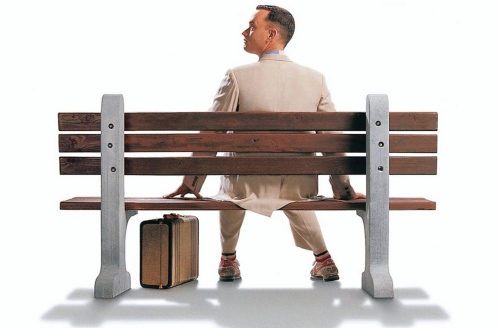Raises a Kierkegaardian Either/Or Question
A friend told me to read The House by the Side of the Road by Sam Walter Foss. I have read loads of poetry or prose and had to memorize some of those writings in my high school English classes.
To be honest, I never memorized or even read that poem. Even worse, I had never heard of Foss. So, I googled both the poem and the poet. Foss wrote in the latter part of the 19th century. This is a link to The House By The Side Of The Road. Foss wrote his five-stanza octaves about sitting in his house next to a road as he watched the world go by. This stanza is an example of his mindset. Essentially, all the others are themes and variations of this one.
I see from my house by the side of the road
By the side of the highway of life,
The men who press with the ardor of hope,
The men who are faint with the strife,
But I turn not away from their smiles and tears,
Both parts of an infinite plan-
Let me live in a house by the side of the road
And be a friend to man.
So, what is my takeaway from the poem? Well, it was written in the time when the term man meant both sexes or, at worst, women weren’t relevant. It harkens back to the beginning of the second paragraph of the Declaration of Independence. “We hold these truths to be self-evident, that all men are created equal, that they are endowed by their Creator with certain unalienable Rights, that among these are Life, Liberty and the pursuit of Happiness.”
Additionally, he was watching his world go by. Some of his sights were good, and others weren’t. Foss was an observer who was happy when things were done correctly and saddened when they weren’t.
The men who press with the ardor of hope,
The men who are faint with the strife,
But I turn not away from their smiles and tears
This is a black-and-white cartoon of what Foss must have felt like.
Foss was awake and saw the world as it functioned or didn’t. When he saw hope, he was happy. When Foss observed lies and hatred, he dissed them. I wonder what Foss would have thought if he had seen this in recent history.
Trump didn’t go to the Capitol. Instead, he sat in the White House watching the riot unfold and did nothing for 187 minutes to stop it. During that time, Vice President Pence fled from the rioters, who wanted to hang him.
When rioters entered the Capitol, the Secret Service took Vice President Pence to a secure place to protect him under the Capitol.
The January 6 committee, in their final report, wrote:
Even then, President Trump did not disavow the rioters. He endorsed their cause, openly sympathized with them, and repeated his Big Lie once again. “I know your pain, I know you’re hurt. We had an election that was stolen from us,” President Trump said at the beginning of his 4:17 p.m. video. “It was a landslide election, and everyone knows it, especially the other side. But you have to go home now. We have to have peace. We have to have law and order. We have to respect our great people in law and order. We don’t want anybody hurt.” The President portrayed the violence as something his political foes would use against him, saying: “This was a fraudulent election, but we can’t play into the hands of these people.” Report of the January 6 committee.
The January 6 committee also presented Trump’s speech the following day. He had a great deal of trouble and retakes to the speech.
After a litany of retakes, Trump managed to finish his address. In the first minute of his speech, he addressed the rioters. He said they should be arrested.
Trump also said he had immediately called the National Guard and the police. It actually took Trump 187 minutes to respond. Trump did call law enforcement...after 3 hours of sitting on his hands as he watched the riot.
On January 20, 2025, Trump pardoned or commuted over 1,500 rioters who attached the Capitol.
I wondered what Sam Walter Foss would have written on January 20, 2025. What would be his updated poem The House by the Side of the Road sound like? More to the point, would it merely be watching and not acting? Actually, what Foss wrote isn’t relevant. The question is whether you merely watch from your home on the side of the road and report what you see. Or do you act to stop future coup attempts? You have a Kierkegaardian either/or moment.
Choose wisely.













